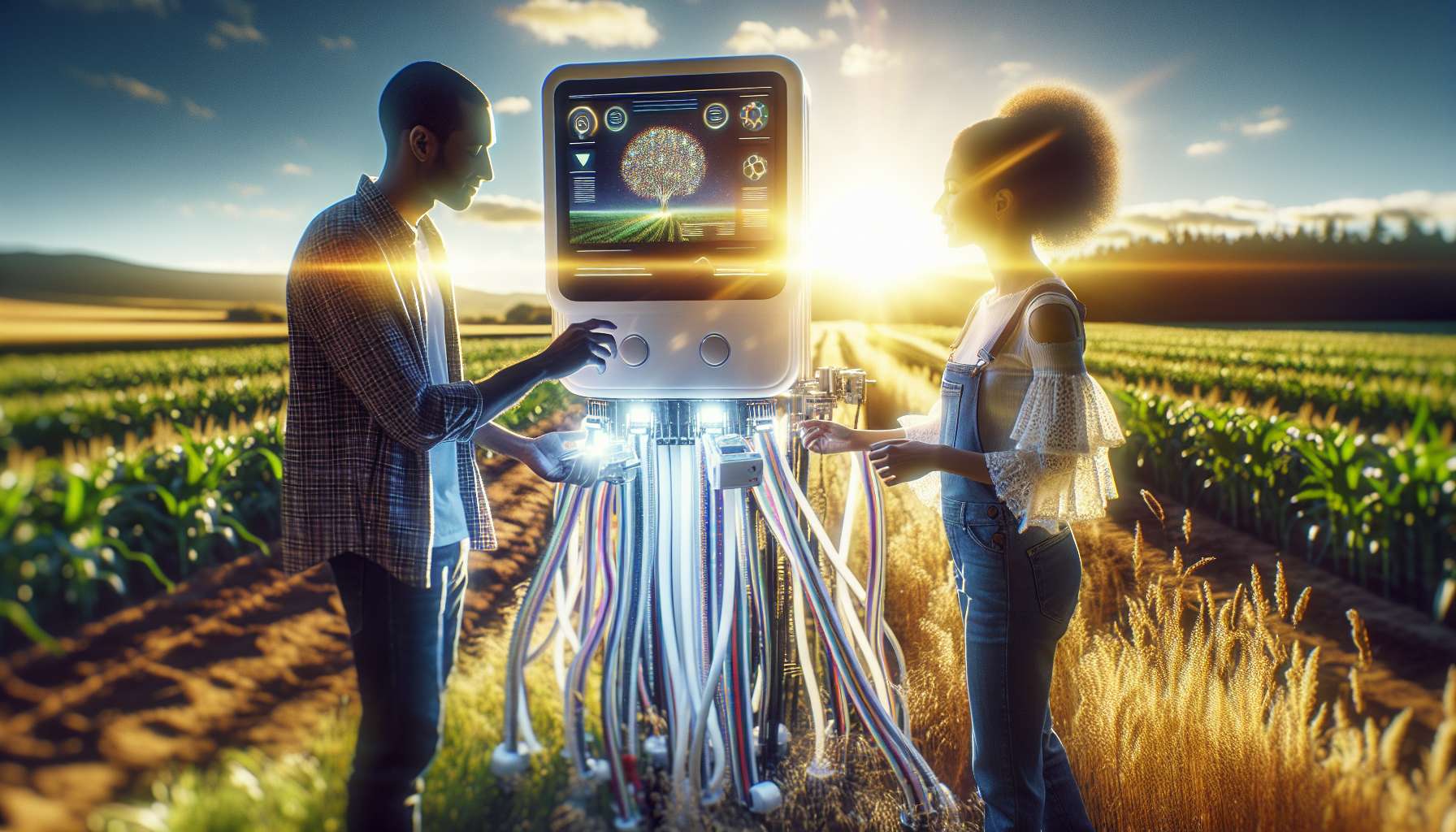Revolutionizing Agriculture Service with Cutting-Edge AI Assistants
Artificial Intelligence (AI) has become a game-changer in various industries, and agriculture is no exception. With the advent of AI technology, farmers and agricultural businesses can now enhance their customer service and streamline their operations like never before. In this article, we will explore the transformative power of AI in agriculture service enhancement and how it can benefit both farmers and consumers.
1. Personalized Crop Recommendations
AI-powered assistants can analyze vast amounts of data, including soil conditions, weather patterns, and crop characteristics, to provide personalized recommendations to farmers. By leveraging machine learning algorithms, these assistants can suggest the most suitable crops for specific regions, optimize planting schedules, and even offer insights on pest control and disease prevention. This level of personalized guidance can significantly improve crop yields and reduce the risk of crop failure.
2. Real-Time Monitoring and Predictive Analytics
AI assistants equipped with sensors and IoT devices can monitor various parameters such as soil moisture, temperature, and nutrient levels in real-time. By continuously collecting and analyzing this data, farmers can make informed decisions about irrigation, fertilization, and other critical factors affecting crop health. Additionally, AI algorithms can predict potential issues, such as pest infestations or drought conditions, allowing farmers to take proactive measures and mitigate risks.
3. Efficient Resource Management
AI-powered systems can optimize resource allocation by analyzing historical data and current conditions. For example, they can determine the optimal amount of water and fertilizer required for each crop, reducing waste and minimizing environmental impact. By automating resource management, farmers can save time, reduce costs, and improve overall sustainability.
4. Smart Pest Control
Pests and diseases pose significant threats to agricultural productivity. AI assistants can help farmers detect and identify pests accurately, enabling targeted interventions and reducing the need for harmful pesticides. By analyzing images and data from drones, satellites, and sensors, AI algorithms can identify early signs of infestations and provide timely recommendations for effective pest control strategies.
5. Enhanced Customer Experience
AI-powered chatbots and virtual assistants can revolutionize customer service in the agriculture industry. These assistants can provide instant support and guidance to customers, answering queries about crop availability, pricing, and delivery schedules. By automating routine tasks, such as order tracking and invoicing, AI assistants can free up human resources to focus on more complex customer needs, ultimately improving customer satisfaction and loyalty.
6. Future Outlook
The potential of AI in agriculture service enhancement is vast and promising. As technology continues to advance, we can expect even more sophisticated AI solutions tailored to the specific needs of farmers and agricultural businesses. From autonomous farming equipment to AI-powered disease detection systems, the future of agriculture is set to be more efficient, sustainable, and productive.
In conclusion, AI assistants are transforming agriculture service by providing personalized recommendations, real-time monitoring, efficient resource management, smart pest control, and enhanced customer experiences. By harnessing the power of AI, farmers can optimize their operations, increase productivity, and contribute to a more sustainable future. Embracing AI in agriculture service enhancement is not just a trend; it is a necessity for businesses looking to thrive in the ever-evolving agricultural landscape.





